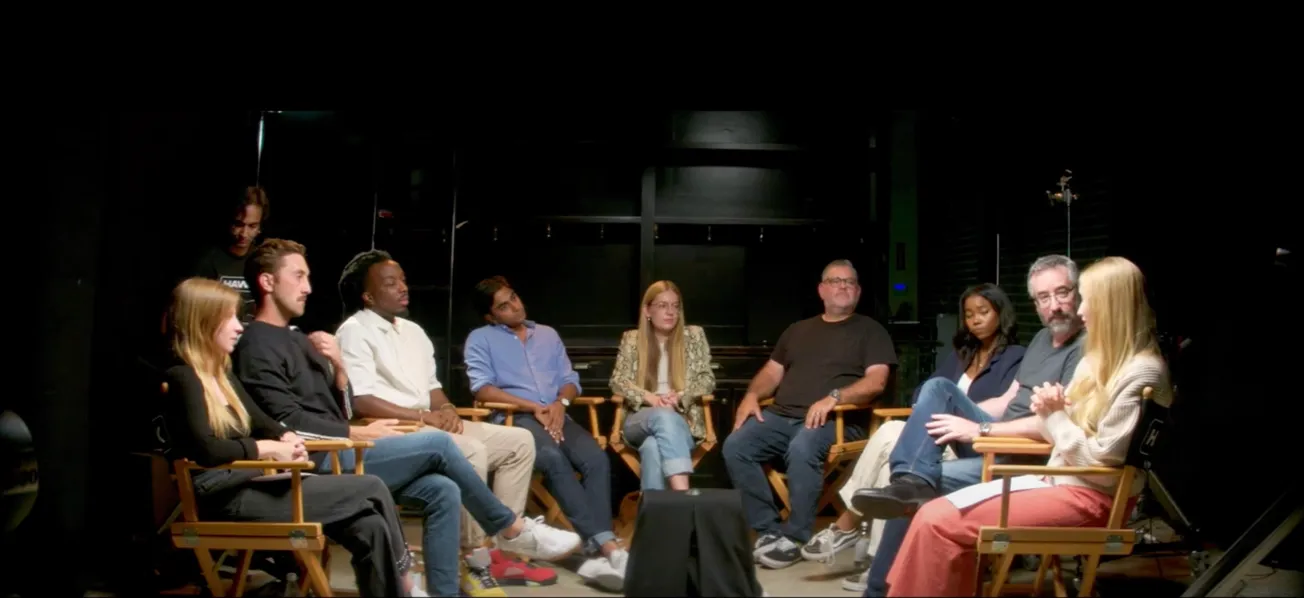Table of Contents
In this blog post, we delve into a recent conversation with Damian Pelliccione, CEO and co-founder of Revry, as part of the Cinematography for Actors Podcast.
Pelliccione shares valuable insights into the evolution of Revry, a media streaming service designed for the LGBTQ+ community, and discusses his journey in the creative industry, highlighting the significance of diversity, networking, and the ever-changing landscape of filmmaking.
The Importance of Inclusion in Media
At its core, Revry aims to uplift marginalized voices within the LGBTQ+ community. According to Pelliccione, "We are authentically the consumer of this product, and we are focused on finding ways to uplift new voices within our own community."
Pelliccione emphasizes the need for diversity in storytelling.
"We are not doing coming out stories. Those have been so done before. We focus on minority communities and the diverse stories that have never had an opportunity to be seen."
Building a Network: Key to Success
During the podcast, Pelliccione discussed the significance of networking in the film industry. He remarked, "Develop a relationship, not the business deal, because that relationship will take you—you don't know where that's going to take you."
This perspective is invaluable for creatives who may feel intimidated by the networking process. Establishing genuine connections can lead to further opportunities and collaborations down the line.
Pelliccione encourages filmmakers to engage with their peers and leverage platforms like Revry and CFA for networking. "You don't have to have a project in the festival to go," he advises.
Attending film festivals and industry events can help creators build relationships and gain exposure, even if they are not presenting their work.

Submitting Projects: Navigating the Process
For filmmakers interested in working with Revry, Pelliccione offers practical advice on how to approach project submissions.
He emphasizes the importance of understanding the platform's existing content and identifying gaps in their offerings. "We are looking for gaps that we are not paying attention to," he explains.
When submitting a project, Pelliccione recommends creating a concise one-sheet that outlines the concept clearly. Revry welcomes open submissions, allowing creators to pitch original ideas as well as completed works.
"You don’t have to give away too much initially," he says, highlighting the significance of ensuring the project aligns with the network’s existing programming.
The Path to Growth and Recognition
Reflecting on Revry's journey since its inception, Pelliccione shares insights about the challenges and triumphs of scaling a creative business. "A lot of blood, sweat, and tears, a lot of ups and downs, a lot of sacrifice," he says regarding the path to building Revry into the successful platform it is today, now serving millions of users worldwide.
He attributes much of this growth to the changing industry landscape, particularly the increased focus on diversity since the Black Lives Matter movement.
"The timing started to shift, and the same opportunity arose for minority co-founders that it hadn’t previously," Pelliccione notes, emphasizing that the unique backgrounds of Revry's founders laid the groundwork for the company's success.
Pelliccione's journey underscores the importance of authenticity and embracing one’s unique identity in story creation. "When I started to amplify who I was, my business shifted in a big way," he asserts.
As creators continue to navigate the evolving landscape of the film industry, Pelliccione’s insights serve as a reminder that authenticity, collaboration, and networking are key components to success.
Watch the full podcast below!
This piece was shaped from an original conversation (recorded, written, or filmed). Using only the source material, editing tools powered by AI helped refine structure and flow under close human guidance. All ideas and details reflect the voices of the original speakers.





